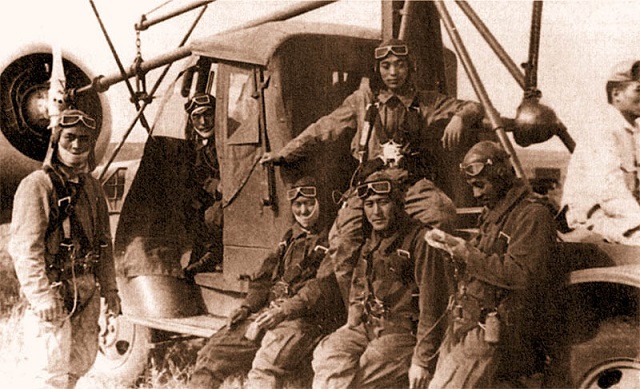The Nomonhan Incident was the climax of rising tensions between Japan and the Soviet Union shortly before the beginning of the Second World War. The end result was a series of battles known as the Battles of KhalkynGol, named after the river which cut through the battlefield. In a similar fashion, the name of the Nomonhan Incident itself is derived from the name of the nearby village, which was located in the center of the area within which the conflict took place.
The whole ordeal began with a single border dispute, not entirely unlike the current territorial disputes between Japan and China. Technically, there was no major reason to dispute the border in question. Neither Japan nor the Soviet Union had any major stake in the village that was at the center of the Nomonhan Incident, and there were no particular military reasons for either side to want control of the border. Nonetheless, the Japanese Imperial Army engaged the enemy in a series of battles that would ultimately affect both Japan and the Soviet Union for some time to come.
A large part of the problem was that Japan entered the conflict under false pretenses. They assumed they could beat the Soviet Union without much of a struggle. Some have also posited that the Imperial Army urged the Nomonhan Incident into action because they were hoping to gain a degree of honor by gaining victory over a major enemy. Whatever their primary reason may have been, it is clear to historians that they were not expecting the loss they incurred.
Japan’s major downfall was the military prowess of Soviet General Georgy Zhukov. From May to August of 1939, the two armies were relatively well-matched. Then, Zhukov began the assault that would bring the Nomonhan Incident to an end by midway through September. He mobilized a number of tanks and aircraft as his men fought stridently against the Japanese. By the end of the conflict, he had lost fewer men as well as less equipment. He also raised morale for the Soviets as he subsequently took over the Red Army on the eve of World War II, The Japan Times reports.
The Nomonhan Incident was a tragic loss for Japan. It was a major injury to their pride, and the deaths of numerous suicide bombers appeared virtually pointless. The biggest effect, however, was caused by Japan’s own response to the battles. In an attempt to retain their pride, they promoted a number of officers who had failed to make a dent in the Soviet forces but had exercised their grandiosity through their ardent struggles in battle. Some of these same officers went on to influence the attack on Pearl Harbor, luring the United States into the Second World War and ultimately leading the Japanese to a much worse defeat. With tensions rising between Japan and its neighboring countries, many now hope that the Nomonhan Incident will serve as a warning against unnecessary military actions in the future.
